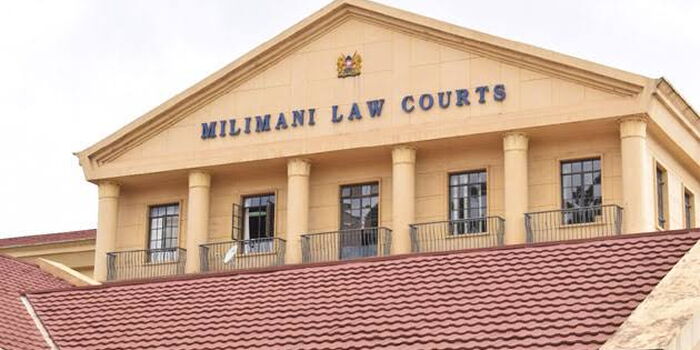The High Court has ruled that Zabron Mokua’s nomination to become a judge at the East African Court of Justice (EACJ) is unconstitutional, handing a fresh setback to both the former Member of County Assembly (MCA) and the government.
This decision, made on Friday, January 31, by Justice Chacha Mwita, stated that the East African Community (EAC) Cabinet Secretary can only make such appointments after consulting with the Judicial Service Commission (JSC).
Mokua was nominated by the former EAC Cabinet Secretary, Peninah Malonza, in April 2024, following the retirement of Justice Charles Nyachae. Nyachae, who had been a former chairperson of the now-defunct Commission for the Implementation of the Constitution (CIC), resigned in November 2023.
Mokua was seen as one of the leading candidates to fill his position. However, his appointment faced opposition, particularly from the Law Society of Kenya (LSK), which questioned Mokua’s qualifications.
They argued that he did not possess the necessary legal expertise and competence required to be appointed as a judge.
In its challenge, the LSK stated, “By secretly selecting Mokua as Kenya’s nominee for the position of judge at the East African Court of Justice, the Attorney General and Cabinet Secretary Malonza denied other qualified Kenyans the chance to compete for the position fairly.”
The East African Law Society (EALS) also raised concerns about the legality of Malonza’s decision, emphasizing that the Cabinet Secretary does not have the authority to nominate a judge.
The LSK and EALS pointed out that only the Judicial Service Commission has the constitutional power to nominate judges. As a result of these petitions, the High Court ruled against Mokua’s appointment, blocking his elevation to the regional court.
To understand more about the East African Court of Justice (EACJ), it is important to note that it was established to resolve disputes among the East African Community (EAC) member states. The court operates according to the EACJ Rules, which are in line with the EAC Treaty’s provisions.
Recently, the EACJ has been involved in a dispute over jurisdiction with Kenya’s Supreme Court. One of the latest cases saw the EACJ publicly criticizing the Supreme Court for making procedural errors during the impeachment of former Nairobi Governor Mike Sonko.
While the EACJ cannot directly overturn rulings made by the Supreme Court, its public criticisms of local court decisions show the importance of its role in ensuring that national judicial systems comply with constitutional guidelines.
This highlights the regional court’s mission to uphold the rule of law within the member states and ensure that judicial actions are in line with the constitution.
Join Kenyan Gen z and millennials official 2025 WhatsApp Channel To Stay Updated On time the ongoing situation https://whatsapp.com/channel/0029VaWT5gSGufImU8R0DO30


